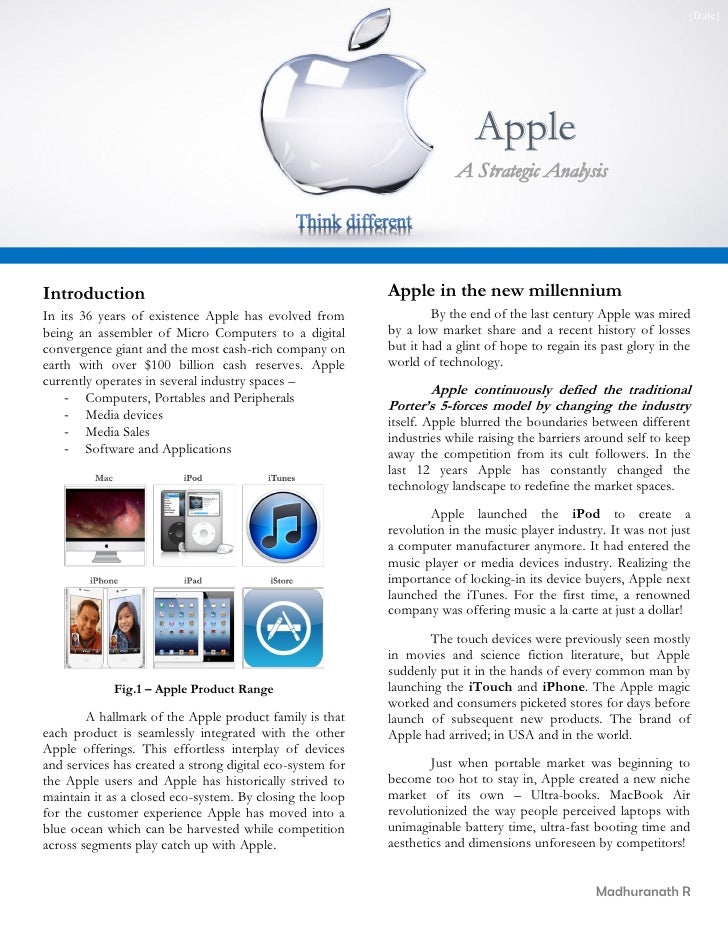Will Apple's AI Strategy Deliver? A Critical Analysis

Table of Contents
Apple's Current AI Landscape: Strengths and Weaknesses
Apple's AI journey is marked by both significant advantages and notable challenges. Understanding these aspects is crucial to predicting its future impact on the AI market.
Strengths:
-
Strong Hardware Foundation: Apple boasts a powerful hardware foundation, with its A-series chips powering its iPhones, iPads, Macs, and Apple Watches. This provides superior on-device processing capabilities for AI applications, leading to faster and more efficient performance. Siri, Apple's virtual assistant, has seen significant improvements thanks to this robust hardware, offering smoother integration across the Apple ecosystem.
-
Extensive User Data: Apple possesses a vast trove of user data, a valuable asset for training and refining its AI models. This data, however, comes with significant responsibilities. Apple employs robust anonymization and data security measures to address privacy concerns, ensuring user trust remains paramount.
-
Closed Ecosystem: Apple's closed ecosystem allows for tighter integration and control over AI features across its product range. This results in a seamless user experience, where AI functionalities are smoothly woven into the fabric of the Apple experience. The cohesive nature of this ecosystem is a significant competitive advantage.
Weaknesses:
-
Relatively Late Entry: Compared to industry giants like Google, Microsoft, and Amazon, Apple's entry into the competitive AI market is relatively recent. This late arrival means catching up requires significant effort and investment.
-
Less Open Approach: Apple's approach to AI development is less open than its competitors. While this prioritizes control and security, it potentially limits innovation and collaboration that can stem from open-source contributions.
-
Data Privacy Concerns: Despite Apple's commitment to privacy, concerns regarding the potential misuse of user data for AI training remain. Maintaining user trust and ensuring complete transparency are ongoing challenges that Apple must address effectively.
Key AI Initiatives: A Deep Dive
Apple's AI efforts are not monolithic; they encompass several key initiatives.
Siri's Evolution and Future Potential:
Siri, while a long-standing feature, has faced criticism for lagging behind competitors like Google Assistant and Alexa in natural language understanding and complex task execution. However, Siri's strength lies in its seamless integration within the Apple ecosystem and its continual improvement through machine learning. Future advancements hold the potential for Siri to become a far more robust and capable virtual assistant.
On-Device AI and Privacy:
Apple emphasizes on-device AI processing to enhance user privacy. While this approach offers significant security advantages, it faces computational limitations compared to cloud-based AI. Apple's unwavering commitment to user privacy, however, strengthens its ethical standing in the AI space.
Machine Learning in Apple Products:
Machine learning powers numerous features across Apple's product line. From advanced image processing capabilities in iPhones to personalized recommendations in Apple Music and health insights in the Apple Watch, machine learning is integral to the user experience. These applications demonstrate the breadth of Apple's AI integration.
Competitive Analysis: Apple vs. the Giants
To assess Apple's AI strategy, we must compare it to its major competitors.
Comparison with Google, Microsoft, and Amazon:
Google, Microsoft, and Amazon lead the AI market with extensive resources and established platforms. They employ more open approaches to AI development, fostering collaboration and innovation. However, Apple's focus on privacy and seamless integration within its ecosystem presents a distinct competitive advantage.
Market Share and Future Projections:
While Apple currently holds a smaller market share in the broader AI market compared to the aforementioned giants, its vast user base and strong brand loyalty provide a substantial foundation for future growth. The integrated nature of its AI strategy, combined with its focus on privacy, could prove to be a winning formula.
Conclusion: Will Apple's AI Strategy Deliver? A Final Verdict
Apple's AI strategy presents a compelling blend of strengths and weaknesses. While its late entry and less open approach pose challenges, its strong hardware, vast user data, closed ecosystem, and unwavering commitment to privacy provide a solid foundation for future success. The success of its AI initiatives, particularly the continued evolution of Siri and the expansion of on-device AI capabilities, will be crucial. Therefore, while facing formidable competition, Apple's AI strategy has the potential to deliver, provided it continues to innovate and address its current weaknesses.
What are your predictions for Apple's AI strategy? Let's discuss!

Featured Posts
-
 Dangote Refinery And Nnpc A New Era For Fuel Prices
May 10, 2025
Dangote Refinery And Nnpc A New Era For Fuel Prices
May 10, 2025 -
 The Back Outside Album Updates On Young Thugs Highly Anticipated Project
May 10, 2025
The Back Outside Album Updates On Young Thugs Highly Anticipated Project
May 10, 2025 -
 High Potential 5 Instances Where Morgan Wasnt The Sharpest Tool
May 10, 2025
High Potential 5 Instances Where Morgan Wasnt The Sharpest Tool
May 10, 2025 -
 Israels Blockade The Devastating Impact On Gazas Health And Security
May 10, 2025
Israels Blockade The Devastating Impact On Gazas Health And Security
May 10, 2025 -
 The Trump Factor How Threats Reshaped Greenlands Relationship With Denmark
May 10, 2025
The Trump Factor How Threats Reshaped Greenlands Relationship With Denmark
May 10, 2025
